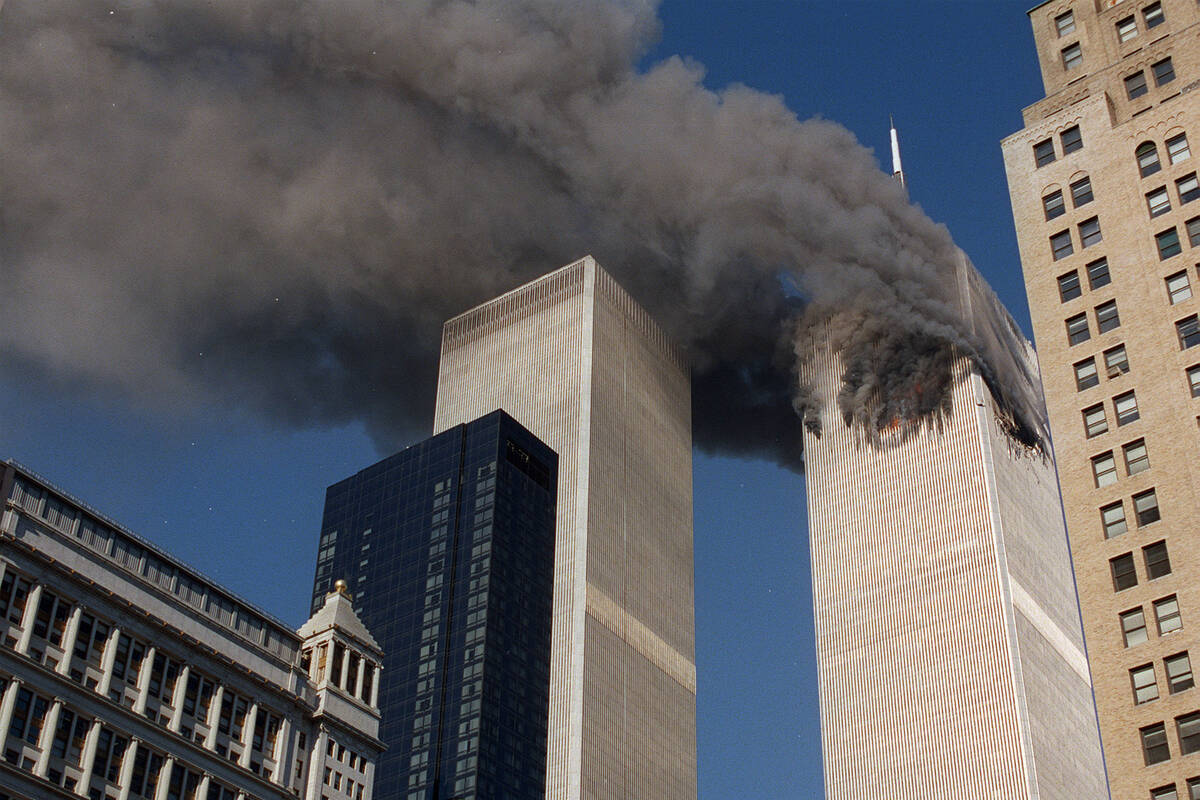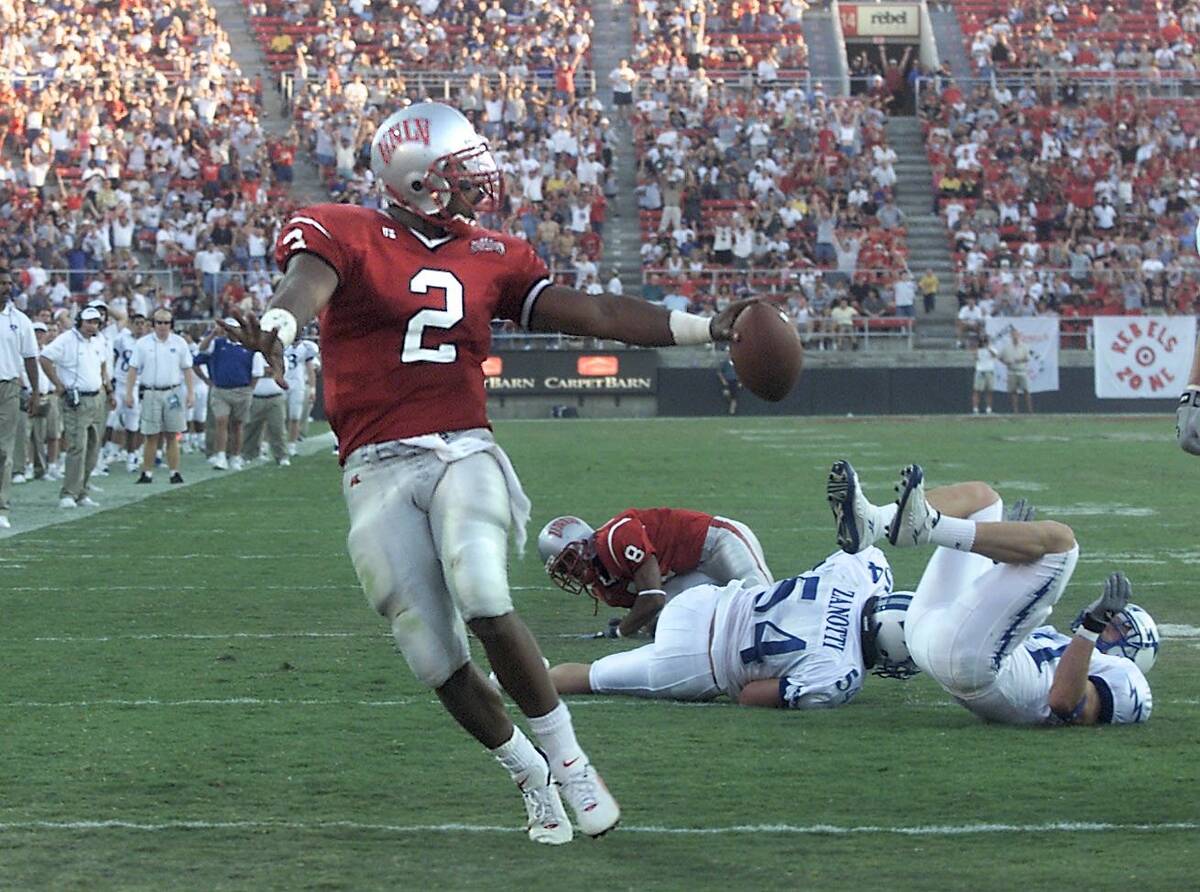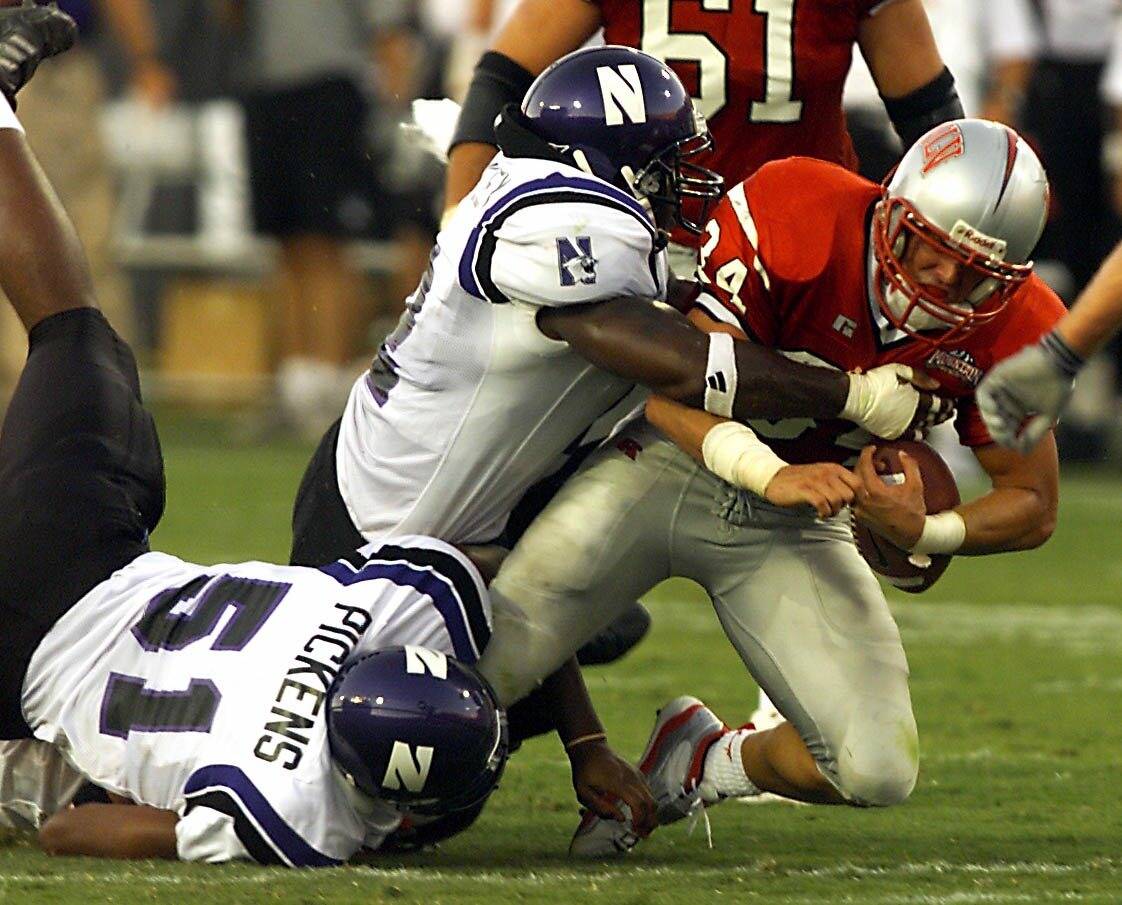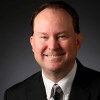9/11 attacks still hit home for former UNLV players
Though born in Chicago, Joe Haro spent many of his formative years in Clifton, New Jersey, across the Hudson River from New York City.
Coming down a hill, he could see the entire Manhattan skyline, including the World Trade Center’s iconic Twin Towers on the island’s southern end.
Twenty years after Sept. 11, 2001, Haro still can’t believe those towers are gone.
The former UNLV running back known as “Jersey Joe” even teared up last week while watching a documentary, the emotions almost as raw as two decades ago when terrorists hijacked four planes and crashed two into the towers, one into the Pentagon and another into a Pennsylvania field after passengers rose up in defiance.
All of it tragic, but the attack in New York hit Haro the hardest.
“It seems like it was yesterday,” said Haro, who rushed for 1,107 yards and 10 touchdowns for the Rebels in 2001 and later served as president of the UNLV Football Foundation. “I can’t believe that it actually happened.”
For today’s UNLV athletes, 9/11 is more of a history lesson than a reality. The Lower Manhattan skyline, to them, is dominated by the 1,776-foot One World Trade Center, not the two buildings it replaced.
UNLV football players practice at Rebel Park under the flight path of busy McCarran International Airport, the noise from the incoming planes so loud that coaches often pause before making their points.
There was no need for that on Sept. 11, 2001, the noise replaced by an unsettling silence.
As far as the Rebels knew, they were still playing Colorado State that Friday at Sam Boyd Stadium. So they hit the practice field as they tried to absorb what was taking place.
“It is the most eerie thing ever, practicing at UNLV with no planes flying over,” said Jason Thomas, a dual-threat quarterback who passed for 1,353 yards and rushed for 481 that season. “That’s something as a Rebel you get used to. It was the most stark reminder.”
The Rebels’ game against Colorado State wound up being postponed as the nation’s college football teams took a one-week break. UNLV’s volleyball and men’s soccer teams had tournaments called off.
Elsewhere in Las Vegas, boxing cards at Mandalay Bay and Paris Las Vegas were canceled. High school sporting events, however, went on.
The day began with those out West waking up to see the horrors on their TVs. Haro is typically an early riser, but for some reason had trouble waking up that morning until his mother, visiting from New Jersey, rousted him.
They tried to make sense of what they were watching. The day became especially painful for them because one of Haro’s roommates, basketball player Eugene Brennan, lost his best friend when the towers collapsed.
“Even though it affected the entire country, it affected us differently because that was our home,” Haro said. “That’s what we saw. That’s what we knew. All of our family and friends were there living it firsthand.”
Thomas also remembered the disbelief he felt watching TV. He compared that day’s impact to what Pearl Harbor meant to an earlier generation.
“It’s almost like an innocence lost,” Thomas said. “It’s like a demarcation in American life. Even when the Oklahoma City bombing happened (in 1995), it was domestic terrorism. It was a rogue actor.
“This, it was people from other countries who hate us because we’re American, and they will kill us no matter what. It doesn’t matter if I’m this young Black kid or an old white guy. They want to kill us all.”
Nearly 3,000 people died from those attacks.
Sixteen years later, on Oct. 1, 2017, Haro and his then-girlfriend Christie, now his wife, were in a VIP section at the Route 91 Harvest Festival when a gunman started firing from Mandalay Bay across the street. They ran out a back exit and got to safety, fortunate to survive the largest mass shooting in U.S. history that took 60 lives.
“It just brought back all those emotions,” Haro said. “Even though 9/11 didn’t personally happen to me, there were so many people it affected that I grew up with and lived in my neighborhood. (Oct. 1) was very eerie because now this is my hometown for 23 years and something you have no control over. It did have a lot of similarities, unfortunately.”
Contact reporter Mark Anderson at manderson@reviewjournal.com. Follow @markanderson65 on Twitter.




















